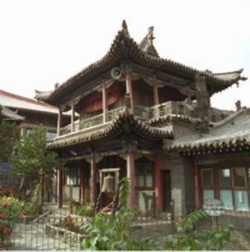Difference between revisions of "Saranankara"
| Line 5: | Line 5: | ||
1. [[Saranankara]]. The [[Buddha]] who appeared in the [[world]] immediately before [[Dīpankara]]. Bu.xxvii.1; J.i.44; MA.i.188. | 1. [[Saranankara]]. The [[Buddha]] who appeared in the [[world]] immediately before [[Dīpankara]]. Bu.xxvii.1; J.i.44; MA.i.188. | ||
| − | 2. [[Saranankara]] [[Thera]] | + | 2. [[Saranankara]] [[Thera]]. |
| − | + | An {{Wiki|eminent}} [[monk]] of [[Ceylon]]. [[Narindasīha]], attracted by his piety and {{Wiki|learning}}, gave him, while yet a [[sāmanera]], a reliquary studded with seven hundred [[jewels]] and numerous [[books]], and also made provision for his maintenance. | |
| − | In the reign of Kittisirirājasīha he carried out, with the king's help, many reforms among the [[monks]], adopting strong measures against delinquents. He was also instrumental in persuading the [[king]] to send an {{Wiki|embassy}} to [[King]] [[Dhammika]] of [[Siam]] (Sāminda) in order to obtain from there a [[chapter]] of [[monks]] for the re establishment of the [[upasampadā]] in [[Ceylon]]. | + | At the instance of the [[king]], [[Saranankara]] composed the [[Sāratthasangraha]] and [[Wikipedia:Sinhala people|Singhalese]] Commentaries on the [[Mahābodhivamsa]] and the [[Bhessajjamañjūsā]] (Cv.xcvii.48ff). |
| + | |||
| + | When [[Vijayarājasīha]] came to the [[throne]], [[Saranankara]] lived in the [[Uposathārāma]] and composed, at the king's request, a [[Wikipedia:Sinhala people|Singhalese]] Commentary on the [[Catubhānavāra]] (Cv.xcviii.23f). | ||
| + | |||
| + | In the reign of [[Kittisirirājasīha]] he carried out, with the king's help, many reforms among the [[monks]], adopting strong measures against delinquents. | ||
| + | |||
| + | He was also instrumental in persuading the [[king]] to send an {{Wiki|embassy}} to [[King]] [[Dhammika]] of [[Siam]] ([[Sāminda]]) in order to obtain from there a [[chapter]] of [[monks]] for the re establishment of the [[upasampadā]] in [[Ceylon]]. | ||
When this had been done, the [[king]] invested [[Saranankara]] with the [[dignity]] of [[Sangharāja]] over [[Ceylon]]. Cv.c.49ff;101ff. | When this had been done, the [[king]] invested [[Saranankara]] with the [[dignity]] of [[Sangharāja]] over [[Ceylon]]. Cv.c.49ff;101ff. | ||
Latest revision as of 17:21, 6 January 2016
1. Saranankara. The Buddha who appeared in the world immediately before Dīpankara. Bu.xxvii.1; J.i.44; MA.i.188.
2. Saranankara Thera.
An eminent monk of Ceylon. Narindasīha, attracted by his piety and learning, gave him, while yet a sāmanera, a reliquary studded with seven hundred jewels and numerous books, and also made provision for his maintenance.
At the instance of the king, Saranankara composed the Sāratthasangraha and Singhalese Commentaries on the Mahābodhivamsa and the Bhessajjamañjūsā (Cv.xcvii.48ff).
When Vijayarājasīha came to the throne, Saranankara lived in the Uposathārāma and composed, at the king's request, a Singhalese Commentary on the Catubhānavāra (Cv.xcviii.23f).
In the reign of Kittisirirājasīha he carried out, with the king's help, many reforms among the monks, adopting strong measures against delinquents.
He was also instrumental in persuading the king to send an embassy to King Dhammika of Siam (Sāminda) in order to obtain from there a chapter of monks for the re establishment of the upasampadā in Ceylon.
When this had been done, the king invested Saranankara with the dignity of Sangharāja over Ceylon. Cv.c.49ff;101ff.
